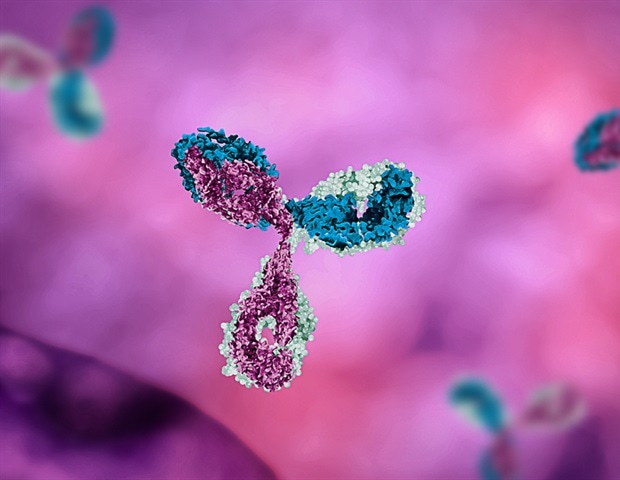
[ad_1]
Data on the first 1,000 healthcare workers, vaccinated in December 2020, show that 90% developed antibodies within three weeks of receiving the first dose. The study, carried out by the Instituto Gulbenkian de Ciência (IGC) and the Centro Hospitalar de Lisboa Ocidental, EPE (CHLO), aims to assess the vaccine’s efficacy and response to different variants, in a range of 1,200 healthcare professionals. health, vaccinated with the first vaccine available nationwide. This data collection was recommended by the World Health Organization to monitor the introduction of the new vaccine internationally.
The challenges posed by the new SARS-CoV-2 virus have stepped up efforts to find mechanisms to contain and prevent the disease. The approval of the various vaccines by the supervisory authorities and the launch of the vaccination campaign marked an important step in controlling the epidemic. However, monitoring the efficacy and impact of the vaccine is crucial to knowing the immediate and long-term effects, as many questions remain unanswered in clinical trials.
Instituto Gulbenkian de Ciência with the Centro Hospitalar Lisboa Ocidental, EPE has been developing a set of SARS-CoV-2 virus surveillance projects in healthcare professionals since spring 2020, which includes the study of vaccine efficacy (conducted on doctors, nurses, operational assistants and diagnostic and therapeutic technicians). The first results of this study, after the administration of the Pfizer / BioNTech vaccine, reveal that 90% of these healthcare professionals already demonstrate an immune response to the vaccine.
All participants were tested for antibodies to the virus before taking the vaccine and three weeks after the first dose. Secondly, the same professionals will be tested three weeks after taking the second dose. The duration of the immune response will be monitored in subsequent stages scheduled throughout the year. Throughout the process, participants answer a questionnaire to record symptoms in order to assess their protection against COVID-19.
The proximity between science and hospitals is more than ever crucial in the fight against this disease. The new vaccines are a fantastic scientific achievement and what gives us hope for our common future. Monitoring the implementation of these vaccines is very important to ensure the effectiveness and sustainability of their action independently. This will allow us to gain confidence in this tool and to refine its administration in the future. “
Mónica Bettencourt-Dias, Director, Gulbenkian Institute of Science
“There is a need to monitor the application of the vaccine, in different settings and different populations, to ensure what scientists call ‘real world evidence.’ Only then can we assess the data on its effectiveness in protecting against infections and diseases “says Carlos Penha-Gonçalves, a researcher from Gulbenkian involved in the implementation of the study.
Jocelyne Demengeot, also a researcher at Gulbenkian, guarantees that “the data we have obtained prove that the vaccine fulfills its first objective: to stimulate the immune system by leading to the development of antibodies specific to the virus”. Monitoring of these immune responses will include the ability to neutralize different variants of the virus. From a hospital point of view, Rita Perez, president of the board of directors of Centro Hospitalar Lisboa Ocidental, EPE emphasizes that “the vaccines are safe and the adherence has been extraordinary. It is important to monitor its introduction to ensure that ‘it fulfills its objective of protection on the front line and that it is a powerful mechanism to contain the pandemic ”.
Gulbenkian also intends to expand this study by monitoring other age groups of the population and different vaccines when they are available nationally, in partnership with other hospitals and municipalities. All the data collected will be shared with the Instituto Nacional de Saúde Dr Ricardo Jorge, which will accelerate, with the European Agencies (ECDC), the extended national monitoring which will make it possible to provide information for possible updates to the recommendations. global policies.
Source:
Gulbenkian Institute of Science
Source link